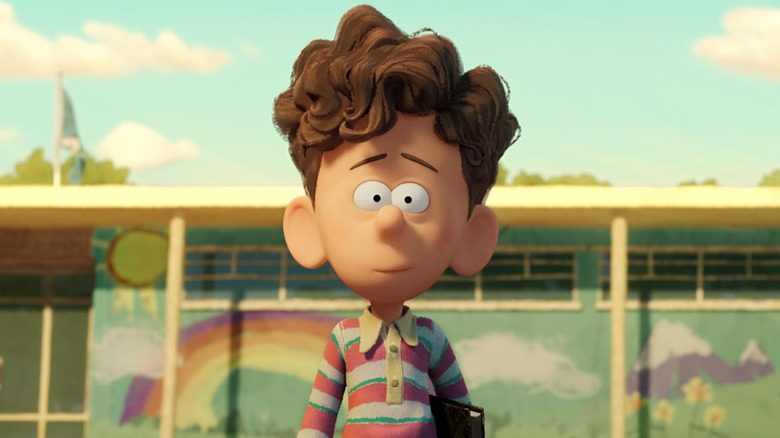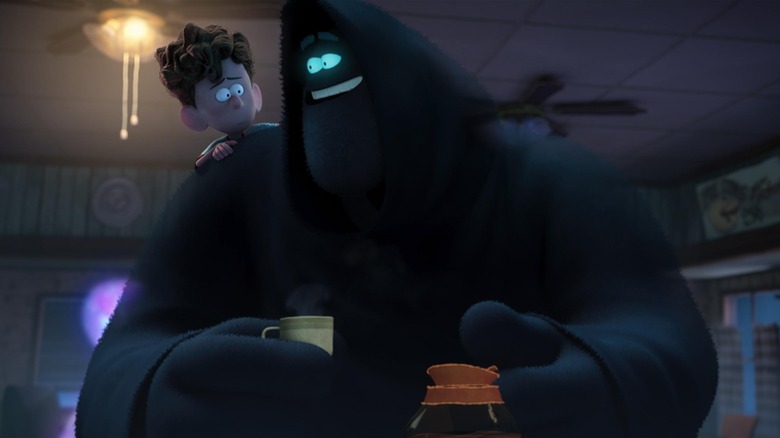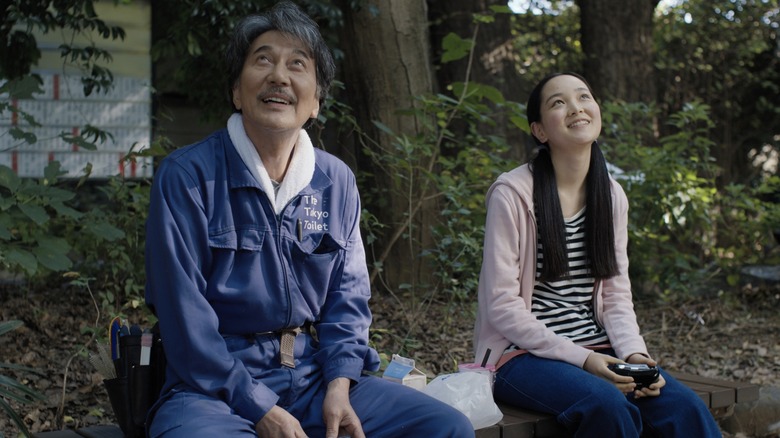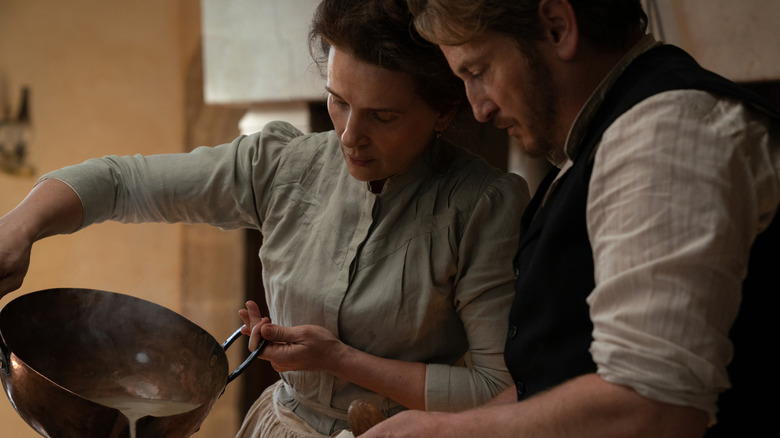You Probably Didn't Watch This Netflix Animated Movie – And It'll Make You Cry Your Eyes Out
(Welcome to Under the Radar, a column where we spotlight specific movies, shows, trends, performances, or scenes that caught our eye and deserved more attention ... but otherwise flew under the radar. In this edition: Charlie Kaufman brings childhood and adult fears to the fore in "Orion and the Dark," "Perfect Days" provides a warm hug to the soul, and "The Taste of Things" is a bittersweet feast for the senses.)
February is now firmly in the rearview mirror and all eyes are looking ahead to this year's Academy Awards, so it makes a lot of sense to use this month's installment of "Under the Radar" as an opportunity to catch up on all of the most underappreciated Oscars hopefuls. It only sort of worked out that way in the end thanks to sheer luck and happenstance, but you bet I'm going to take credit for it anyway. (If it somehow wasn't clear by now, this is an ongoing column where everything's made up and the points don't matter.) It doesn't always work out that all three titles covered in any given month correspond to any sort of unifying theme, which is why only two of the three titles in this installment truly fit the awards-fever buzz. But for those who find themselves on the same wavelength as any of these surprisingly thoughtful movies, that alone can be its own reward.
January is typically considered a wasteland for releases (although this year was an exception to that rule thanks to offerings like "Society of the Snow") while February tends to be the domain for forgotten flops like "Madame Web." Fortunately, this past month had something for everyone — from the all-ages pathos of "Orion and the Dark" to "Perfect Days" and its moments of quiet wisdom to the foodie delights of "The Taste of Things."
Orion and the Dark
Who can't relate to feeling afraid of the dark? At its heart, however, it wasn't really the dark itself that troubled our young, developing minds. It was more about the anxieties and complicated thoughts that came along for the ride under the cover of night — concepts that most of us couldn't even articulate at the time but were no less terrifying to face without running to our parents' bedroom or reaching for the reassuring glow of a night light. It's a universal phobia baked right into our DNA, so it makes perfect sense that a movie like "Orion and the Dark" would literalize the concept for a generation of kids raised on Pixar movies. What's far more unexpected, however, is the fact that this animated tearjerker goes even further and gives plenty for parents to chew on, too.
Directed by animation veteran Sean Charmatz and written by Charlie Kaufman (yes, that Charlie Kaufman), the movie follows young Orion (Jacob Tremblay) whose fear of the dark is really more of a cover for his fear of, well, everything. After one particularly bad meltdown finally causes Dark (yes, the physical embodiment of darkness voiced by Paul Walter Hauser) to show up and confront the poor kid, Dark whisks Orion away on one long nighttime journey to see if he can't convince him that he's not so bad after all. This is a pretty standard setup, but things take a truly meta-turn with the introduction of a powerful framing device that allows the story to shift into another gear entirely. Suddenly, a simple kid's story becomes a generational tale about parenting, the importance of storytelling, and facing our most existential fears. Just have a tissue box handy.
"Orion and the Dark" is currently streaming on Netflix.
Perfect Days
Hirayama has no reason to be so happy and content throughout "Perfect Days," Japan's Oscar-nominated entry for Best International Feature Film. A younger coworker all but asks him this very question early on, demanding to know what enjoyment he could possibly get from taking their job as toilet cleaners in Tokyo so seriously. Unlike the unmotivated youth, we as viewers get an intimate look at Hirayama's almost ritualistic daily routine, waking up bright and early to water his plants, listening to Western music on his way to work, and gazing in silent awe and appreciation at the trees and shadows they cast outside of various public bathrooms — ones he cleans with the fastidiousness of hotel housekeeping tidying up a new room. He lives a solitary life, in which the only individuals who recognize him most are small business owners of local food places or bathhouses he frequents. In fact, he never utters a single word of dialogue for the first half hour of the film.
And yet, all the while, Hirayama seems more at peace than anyone we've ever met before. The key to director Wim Wenders' slice-of-life tale is the casting of Koji Yakusho as our main character, who has a face we instantly like with inscrutable eyes hinting at depths of wisdom he would never actually verbalize. As he goes about his days observing the overlooked aspects of society that nobody else cares to notice, it becomes clear that this impressionistic mood piece has far more on its mind than one might first assume. What little story there is takes the form of episodic side journeys, uncovering layer upon layer of Hirayama's entire worldview. All of this adds up to one of the year's most quietly profound experiences.
"Perfect Days" is now playing in theaters.
The Taste of Things
There are food porn movies, there are movies you shouldn't watch while hungry, and then there's "The Taste of Things." Writer/director Trần Anh Hùng's latest film (and first since 2016) nabbed France's selection for International Feature at the Oscars and it's easy to see why. On the surface, there's an undeniable pleasure in watching talented characters create art out of their biggest passions. Here, we follow Juliette Binoche's brilliant cook Eugénie and her well-oiled working relationship with chef Dodin Bouffant (Benoît Magimel) in late 1880s France. For much of the film, the constantly roving camera almost struggles to keep pace with the deliberate, yet studious pace of the French cooks who work genuine magic together in the kitchen.
But, at its heart, this story is about the unique bonds created and fostered by experienced artistic partners — bonds that sometimes blossom into romantic love, but which prove to be much more complex and multifaceted than that. Eugénie and Dodin remain unmarried and stay in separate bedrooms, despite Dodin's well-established attempts to propose over the two decades they've worked together in the same estate. Eugénie values her independence and doesn't wish to ruin the proven dynamic they've enjoyed throughout the long years, even as they frequently sleep together on occasions where Eugénie pointedly leaves her door unlocked. But when health issues crop up and put a damper on her otherwise free-spirited life, the backbreaking effort of preparing the most elaborate dishes turns into the purest expression of love and devotion.
Giving away anything more would be a faux pas as unforgivable as a disorganized menu or a poorly-paired wine selection, but sampling "The Taste of Things" will leave the finest aftertaste.
"The Taste of Things" is now playing in theaters.



